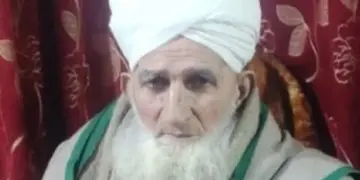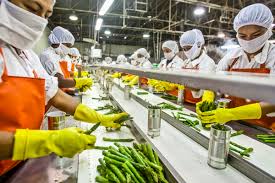By: Arshid Qalmi
As a parent, it is easy to fall into the trap of expecting your children to be reflections of yourself, an extension of your dreams, desires, and experiences. But as I watch my teenage son grow, I am constantly reminded that he is not a mere copy of me. He is an individual in the making, with his own thoughts, aspirations, and struggles. My role as his father is not to mould him into a replica of myself, but to nurture the unique person he is becoming, with hope and respect for his journey.
In a world that often encourages conformity, it can be tempting to impose my own ideas of success, behaviour, or life choices on my son. After all, I’ve lived through many of the challenges he is now facing, and I could easily be the voice of authority in his life. However, I’ve come to realize that my experiences, though valuable, are not necessarily the blueprint for his.
As parents, we need to recognize and respect the individuality of our children. My son’s interests, passions, and personality may differ from mine, and that’s not only okay it’s something to be celebrated. He’s his own person, with a unique combination of talents and flaws, just as I was at his age. The beauty of parenting is witnessing the evolution of his character, understanding that he’s on a path to discovering himself, and offering guidance without overshadowing his sense of self.
This respect for his individuality extends to his decisions, opinions, and even mistakes. I’ve learned to give him the freedom to explore his own way, even when I don’t fully agree. I understand that these formative years are crucial for him to test boundaries, question norms, and carve out his own identity. While it’s important to offer advice and wisdom, it’s equally important to step back and let him learn through his own experiences.
Like any parent, I hold immense hope for my son’s future. But my hope is not tied to specific outcomes or predetermined paths. It’s a hope that he will find fulfilment, not just success as the world defines it. I want him to lead a life where he is true to himself, not one where he is trying to live up to others’ expectations, including mine.
I believe in his potential, but I also understand that the world he is growing up in is vastly different from the one I experienced as a teenager. My role is not to impose my vision of his future, but to support his dreams to be a source of encouragement as he discovers what he is passionate about. Whether he wants to become a doctor, an artist, or something entirely unconventional, I hope he has the courage to pursue what makes him feel alive.
In many ways, parenting a teen means letting go of control and trusting that the seeds we’ve planted in their early years will bear fruit. It’s about having faith in their ability to make decisions, even if they stumble along the way. The mistakes my son makes now will help shape his resilience and wisdom later in life, and as a parent, I must allow him the space to grow from them.
Adolescence is a time of great change, both for my son and for me as a father. It is the period where the child I once knew begins to transform into a young adult, full of curiosity and often confusion. His moods may shift, his opinions may clash with mine, and his desire for independence can sometimes feel like rebellion. But all of this is part of the natural process of growth.
There are days when he seems distant, caught up in his own world of friends, technology, or personal interests. It’s during these times that I remind myself that he’s not pulling away from me but is instead exploring his own identity. The emotional distance that can sometimes feel jarring is just a sign that he is growing up. I’ve learned to give him space, while always keeping the door open for communication.
There are also moments of profound connection, where he seeks my advice or shares his dreams with me. These moments are precious, and I’ve come to treasure them, knowing that they are part of a delicate balance between giving him the independence he craves and being the support system he still needs.
One of the most challenging aspects of parenting a teenager is finding the right balance between guidance and freedom. My instinct as a father is to protect him from the world’s harsh realities, to shield him from the mistakes I made or the pain I’ve experienced. But I also know that he must navigate his own path. I strive to be the guide on the side rather than the all-knowing figure in front. I offer advice when asked, share my perspective when needed, but I also recognize that he will sometimes choose differently. And that’s okay. In fact, it’s essential. He must learn to take responsibility for his choices, to understand the consequences of his actions, and to develop the critical thinking skills that will serve him throughout his life. At times, it feels like walking a tightrope, wanting to step in and help but knowing that he must find his own balance. As difficult as it can be, I’ve learned that letting go is not a sign of weakness but a testament to my belief in his ability to grow.
Trust is the cornerstone of any relationship, and this is especially true with my son. I’ve worked hard to build a relationship where he feels comfortable sharing his thoughts, even when they differ from mine. Open communication has been key to fostering this trust. Rather than imposing rules without explanation, I’ve made it a point to discuss the “why” behind them. By treating him as an individual capable of understanding, I’ve earned his respect, and in return, he’s more likely to approach me when he faces dilemmas or challenges. Trust is a two-way street, and I’ve had to show him that I trust his judgment, even if I sometimes disagree with it.
I’ve also come to understand that respect is mutual. Just as I expect him to respect my opinions and boundaries, I must also respect his evolving views. Adolescence is a time of questioning, and I encourage him to challenge ideas even mine because I know it’s part of him becoming his own person.
As my son continues to grow, I remind myself that his journey is his own. He is not a carbon copy of me, nor should he be. My greatest responsibility as his father is not to shape him into what I think he should be, but to empower him to become the best version of himself.
With hope for his future and respect for his individuality, I will continue to walk alongside him, offering guidance when needed, but always recognizing that this is his path to walk. He is an individual in the making, and I am proud to witness his evolution.



